Anthony Albanese at odds with experts over Indigenous voice to parliament
Anthony Albanese’s assurance that parliament will control what matters the voice can consider has been challenged by top constitutional law experts.
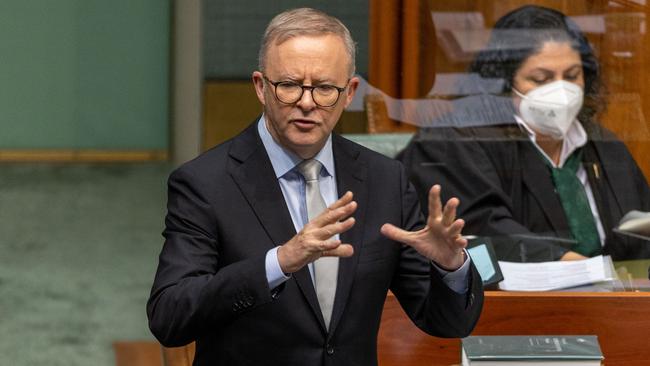
Anthony Albanese’s public assurance that parliament will control what matters the voice can consider has been challenged by the nation’s top constitutional law experts, who say the scope of the advisory body cannot be restricted by politicians.
Ahead of the government’s Constitution Alteration Bill being introduced to the House of Representatives on Thursday, laying out the proposed question and constitutional amendment to be put at the referendum, the Prime Minister condemned the “noise” and “scare campaign” he said was being stoked by opponents of the voice.
Mr Albanese has twice this week argued the third clause of the government’s proposed constitutional amendment delivers “primacy of the parliament for what the voice will consider”.
But constitutional law experts Anne Twomey and George Williams said the amendment’s second clause, which gives the voice power to “make representations to the parliament and the executive government of the commonwealth on matters relating to Aboriginal and Torres Strait Islander peoples”, ensured what it considered and advised on was out of reach of the parliament.
The third clause of Mr Albanese’s proposed new chapter of the Constitution states: “The parliament shall, subject to this Constitution, have power to make laws with respect to matters relating to the Aboriginal and Torres Strait Islander voice, including its composition, functions, powers and procedures”.
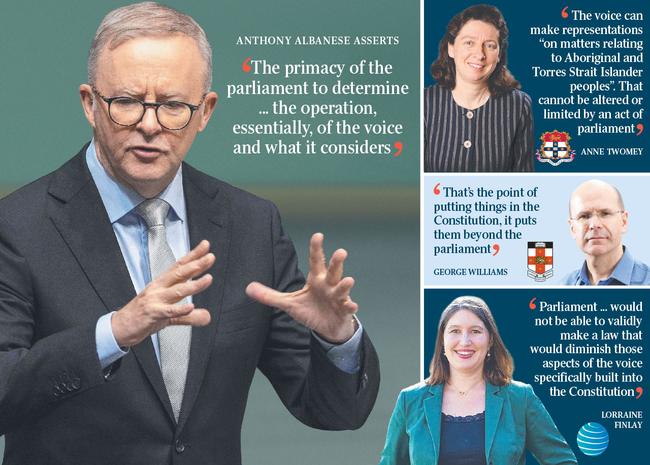
On Wednesday, Mr Albanese said that clause gave “the primacy of the parliament to determine the structure and functions, including to determine the operation, essentially, of the voice and what it considers”.
Professor Twomey, from the University of Sydney, said the amendment gave parliament primacy over matters relating to the voice, including whether the government was obliged to consider its representations and how it responds to them.
But she added: “The scope of what the voice can make representations about is determined by proposed s 129(ii) (the second clause), which states that the voice can make representations ‘on matters relating to Aboriginal and Torres Strait Islander peoples’. That cannot be altered or limited by an act of parliament.”
Professor Williams, of the University of NSW, said Mr Albanese’s statement on the primacy of parliament could not stand without qualification.
“They (the parliament) do have primacy over most things and that’s what clause three does, it’s a strong power that emphasises the role of parliament and the government has strengthened that role significantly. But there are some things it will not have a remit over, which is actually pretty limited,” he said.
“Parliament couldn’t stop there being a voice and parliament can’t stop the voice being able to make representations to parliament and the government of the Commonwealth on those matters relating to Aboriginal and Torres Strait Islander people. They’re fixed. That’s the point of putting things in the Constitution, it puts them beyond the parliament.”
Australian Human Rights Commissioner Lorraine Finlay on Thursday split from her colleagues at the commission to denounce the proposed voice, saying it was not a “modest proposal” and could substantially increase the risk of bureaucratic complexity, legal uncertainty and judicial activism.
Ms Finlay – writing in The Australian – also said the second clause went beyond even the UN Declaration on the Rights of Indigenous Peoples.
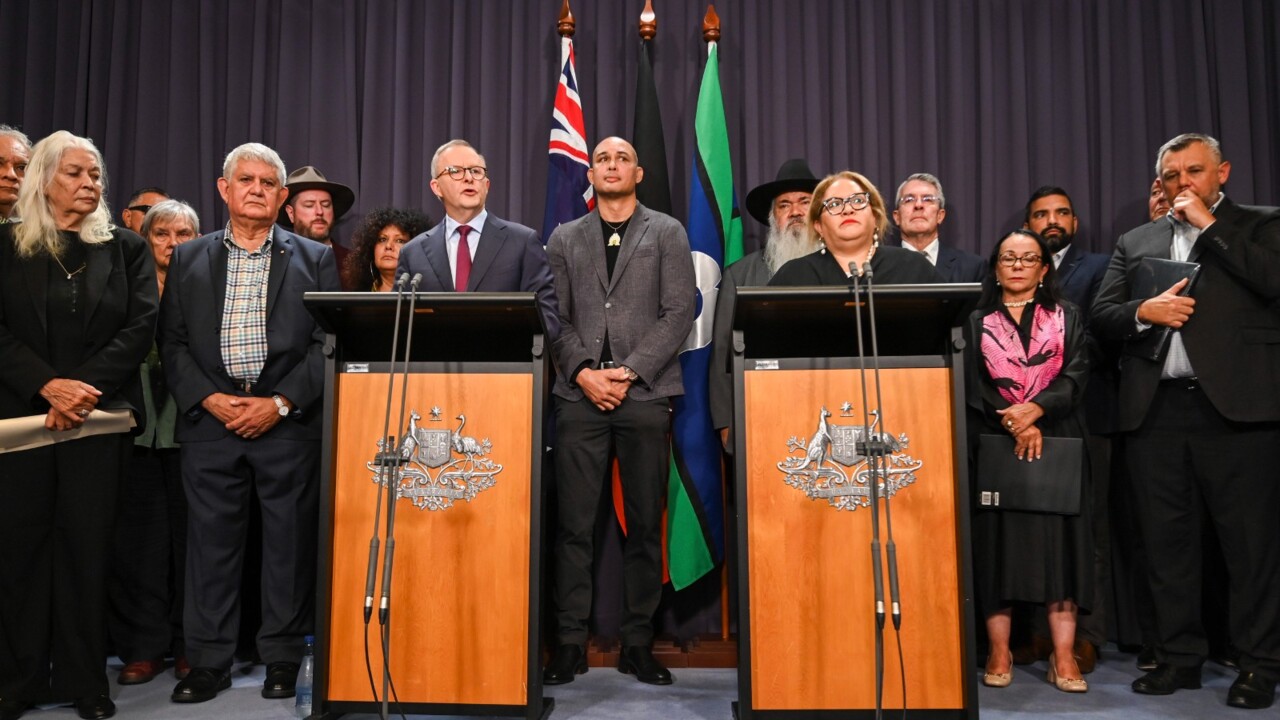
The Human Rights Commissioner, a long-time critic of the voice proposal, said: “It is difficult to think of an issue that would be beyond the scope of the voice in its proposed form, as surely every law or policy of general application would be considered to be ‘matters relating to’ Indigenous Australians in the same way as they are matters relating to all other Australians.”
Ms Finlay, who was appointed to her role by the Morrison government and was a former Liberal candidate, has previously appeared in a 2021 Institute of Public Affairs advertisement saying it would divide Australians on the basis of race.
On Thursday, she wrote the proposed new constitutional amendment goes beyond the UN Declaration on the Rights of Indigenous Peoples and possibly conflict with other international human rights agreements.
“Article 1 of the Universal Declaration of Human Rights says ‘all human beings are born free and equal in dignity and rights’. UNDRIP itself expressly provides that it does not authorise any action which would impair the ‘political unity of sovereign and independent states’,” she writes.
“The draft wording that has been announced goes beyond ensuring that Aboriginal and Torres Strait Islander peoples have a right to participate in decision making that affects them. It inserts race into the Australian Constitution in a way that undermines the foundational human rights principles of equality and non-discrimination.
“You can believe passionately in human rights, equality, and the importance of reconciliation and decide – based on your very belief in the importance of those principles – to vote No.”
Mr Albanese said Australians would either wake up and say “what just happened” if the referendum was voted down, or wake up to a “very modest change” that recognised the fullness of Australia’s history if the referendum was carried.
“Every single time there has been an advance on Aboriginal Torres Strait Islander affairs in this country, in my lifetime, there has been an argument, which says ‘it will end in litigation’. Wik, Mabo, the apology to Stolen Generations,” he said.
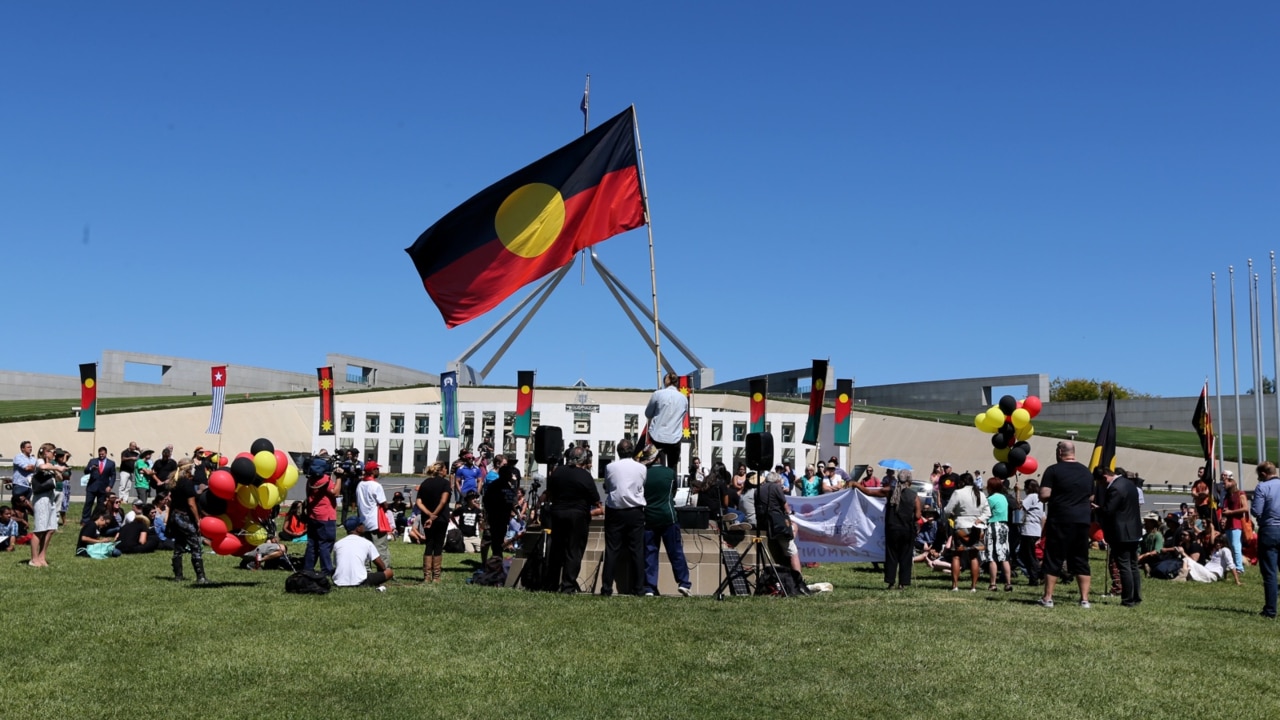
“I sat in that parliament throughout the entire Howard government years being told that if we had an apology, it would divide the nation. Does anyone think that the apology divided the nation now? I’d ask people in this parliament, in the House of Representatives and the Senate, for those people who are thinking about what they should do, what they have an obligation, in my view, to consider is – did the apology create more unity or less? In my view, it made us a better nation. So will constitutional recognition.”
Professors Twomey and Williams have worked extensively on the voice, including being members of the constitutional expert group that provides advice to the government’s referendum working group.
Professor Williams also took issue with the argument – which has been used by Mr Albanese – that the voice will only be able to make representations on matters that “directly” affect Indigenous Australians, pointing out its scope was broad.
“When it comes to the High Court, if the voice started making representations on a matter that had nothing to do with Aboriginal peoples, you could take that to the court,” he said.
“It can’t be making representations on tax policy without any connection to its community but if it made a representation arguing for tax deductions specific to Indigenous peoples or different zones of tax specific to Indigenous peoples, that would be matters it could make representations on because it is provided for by the constitutional change. It’s all about context.”
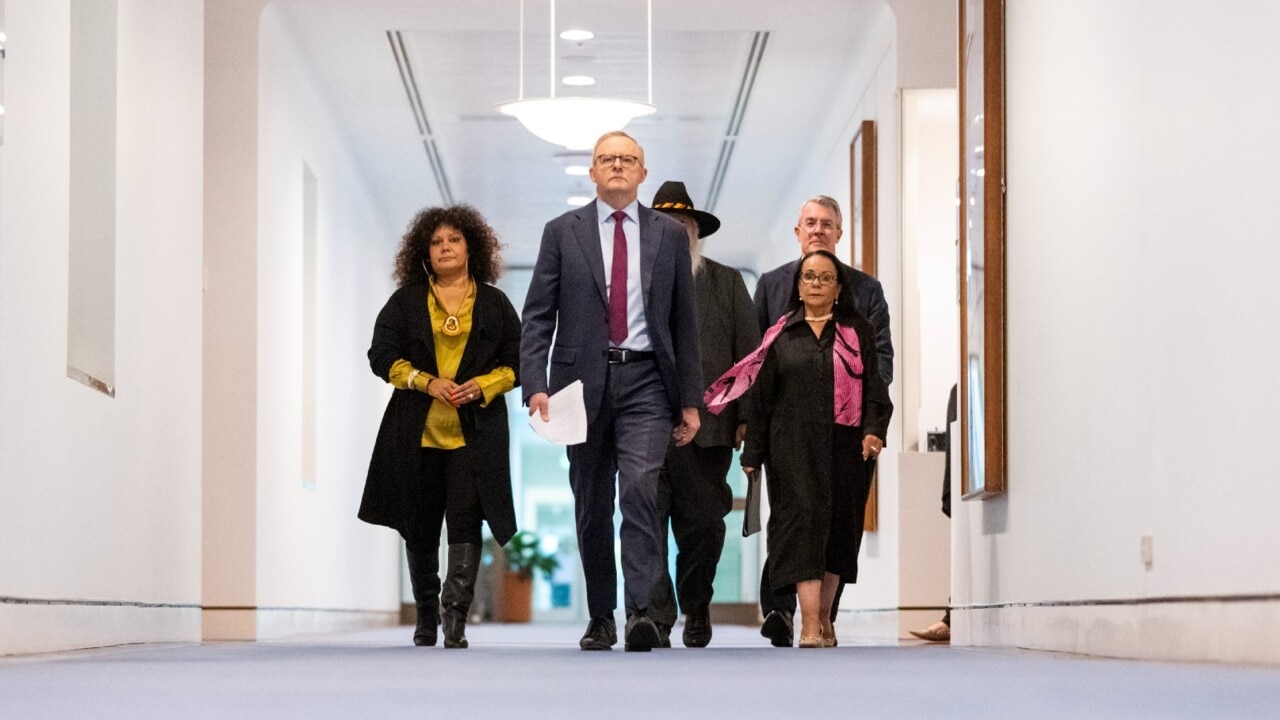
Opposition Indigenous Australians and legal affairs spokesman Julian Leeser said the proposed constitutional amendment put by Mr Albanese and his referendum working group, comprising 21 Indigenous leaders, needed to be tested because it is what the High Court would be interpreting in future decisions.
Mr Leeser, who has long supported and worked on the voice, also fired back at Mr Albanese’s accusations that he and the Coalition were undermining the advisory body by raising questions about how it will work.
“There’s nothing illegitimate about asking questions about the Prime Minister’s wording. In fact, that’s our job as parliamentarians. What has been sad is that the Prime Minister has not sought to answer any of the questions and instead has sought to delegitimise the questions,” Mr Leeser said.
“This issue is one of the government’s own making, because we are on the third iteration of the amendment and we are yet to have any public process testing the legal ramifications of the amendment.”


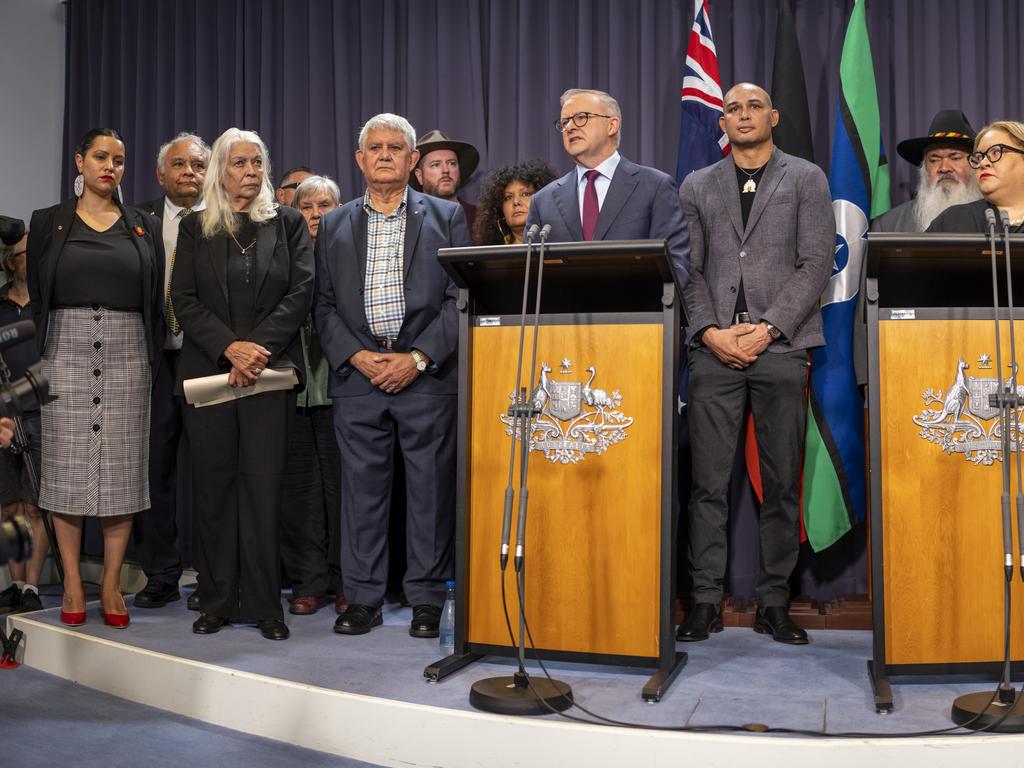
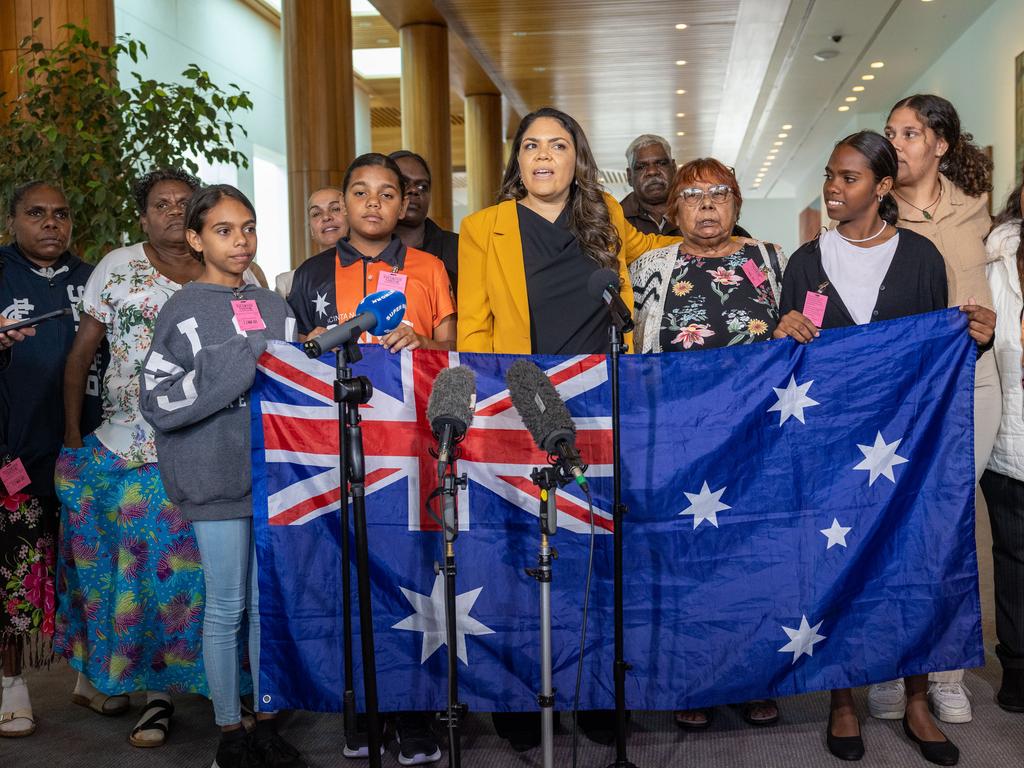
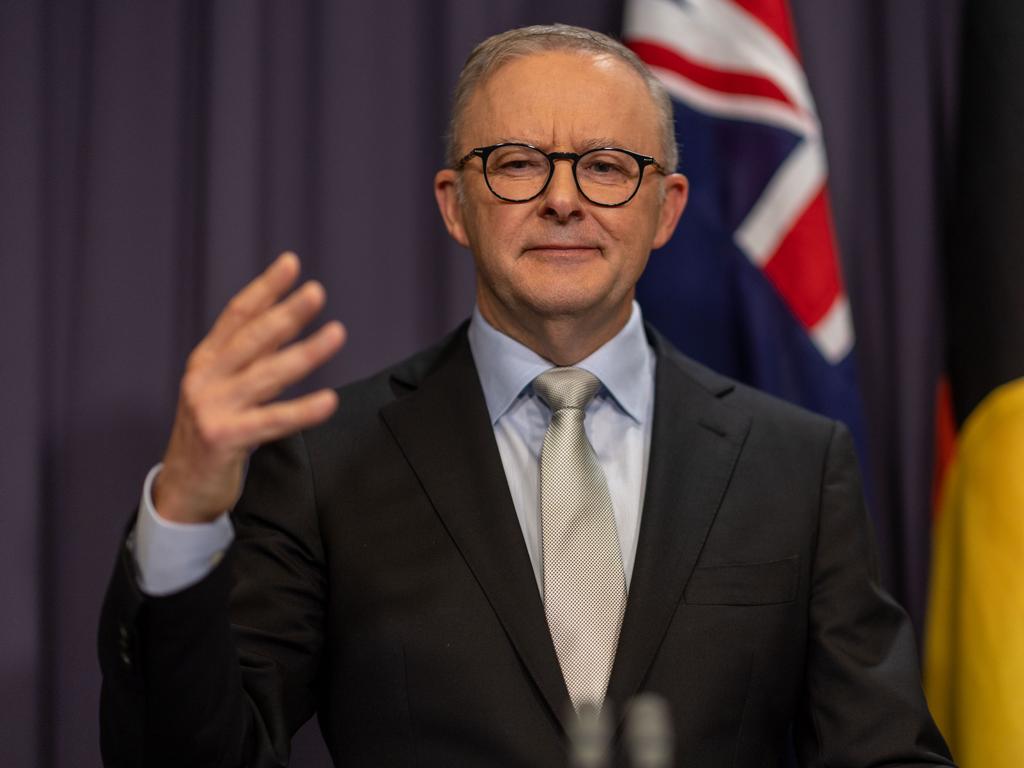
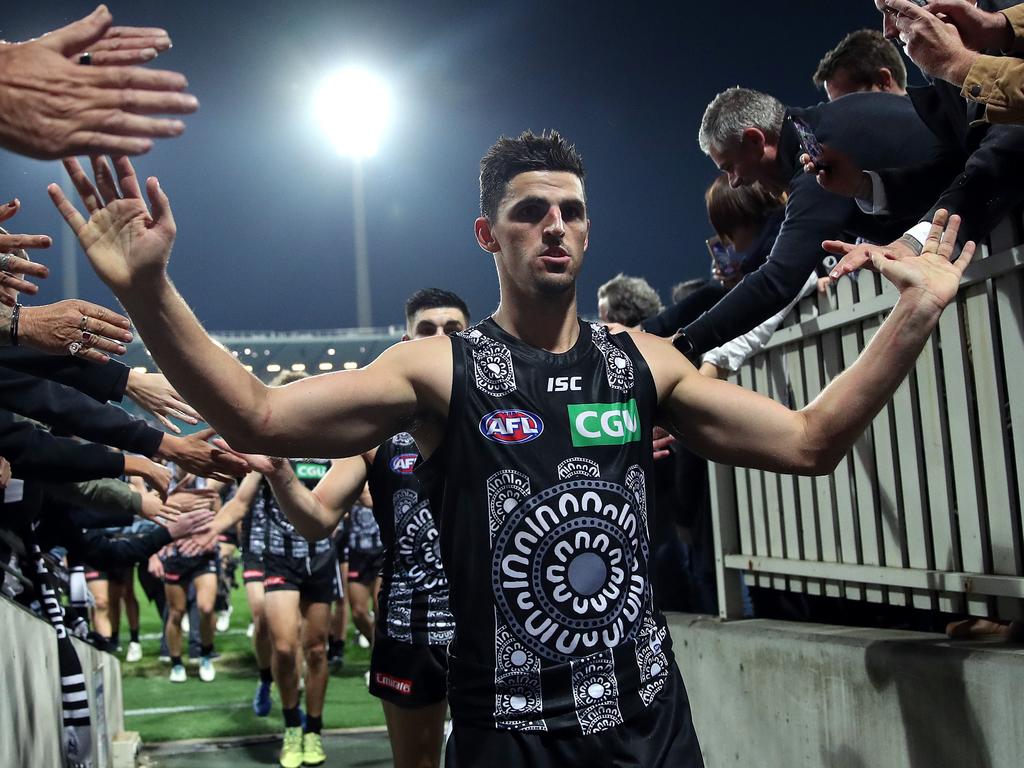
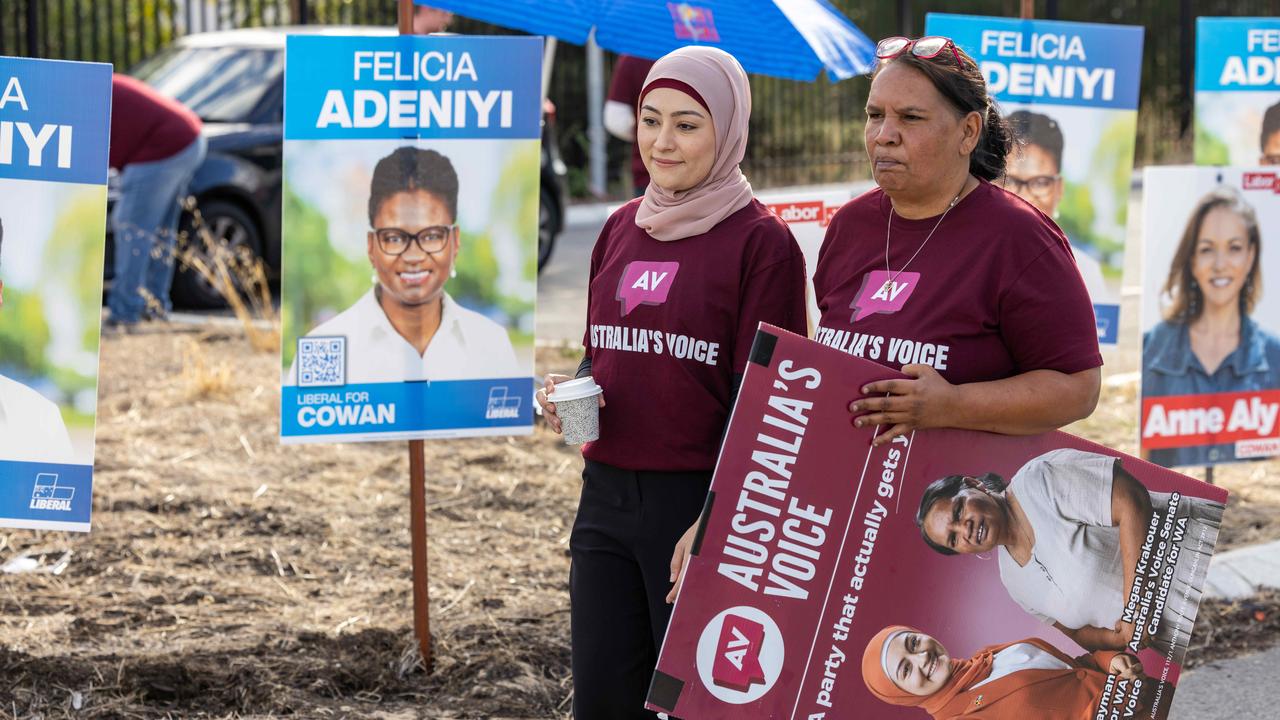

To join the conversation, please log in. Don't have an account? Register
Join the conversation, you are commenting as Logout